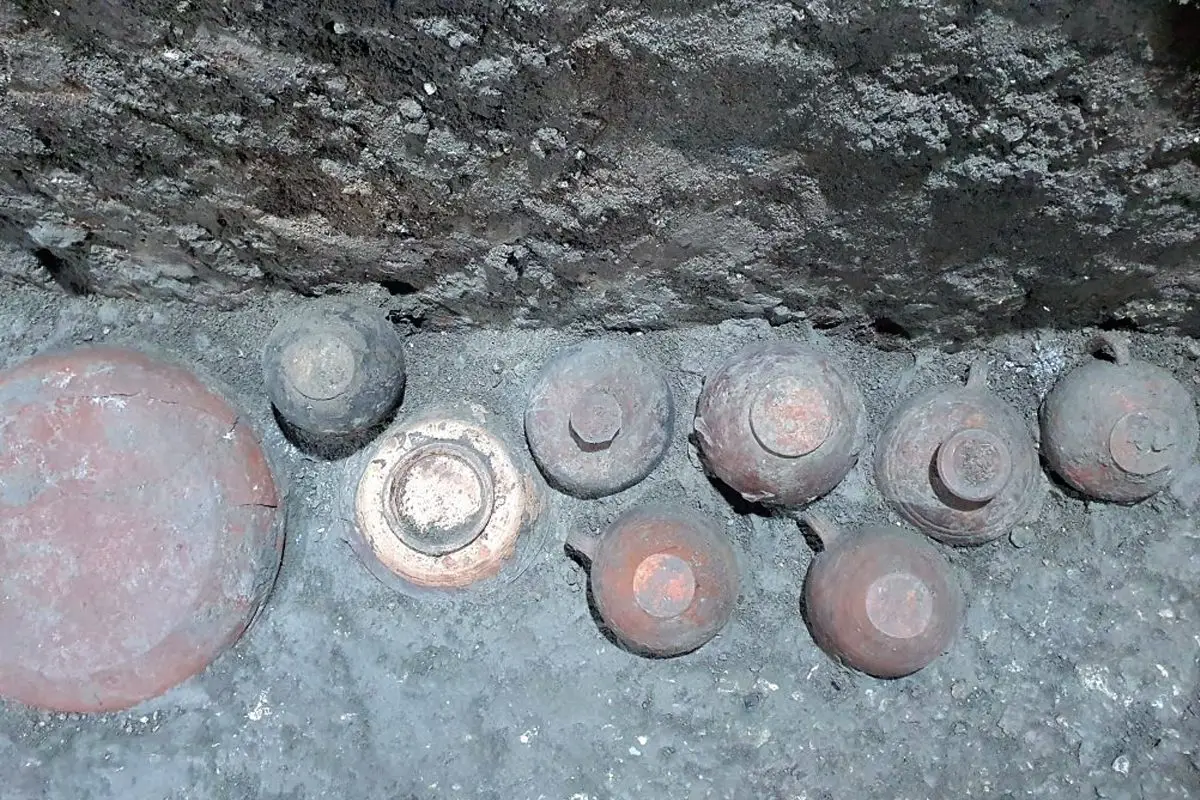ARCHAEOLOGISTS HAVE MADE NEW DISCOVERIES DURING EXCAVATIONS OF THE CIVITA GIULIANA, A LARGE VILLA COMPLEX IN THE SUBURBS OF ROMAN POMPEII.
Pompeii was a Roman city, located in the modern commune of Pompeii near Naples in the Campania region of Italy. Pompeii, along with Herculaneum, and many villas in the surrounding area were buried under 4 to 6 m (13 to 20 ft) of volcanic ash and pumice by the eruption of Mount Vesuvius in AD 79.
The eruption spewed forth a deadly cloud of super-heated tephra and gases to a height of 33 km, ejecting molten rock, pulverised pumice and hot ash at 1.5 million tons per second, ultimately releasing 100,000 times the thermal energy of the atomic bombings of Hiroshima and Nagasaki.
The Civita Giuliana is located northwest of Pompeii in an agricultural suburb that produced oil and wine. The villa was first excavated during the early 20th century, where a team led by the Marquis Giovanni Imperiali, uncovered numerous residential rooms and parts of the complex used for food processing. In 2021, archaeologists uncovered the remains of a preserved Roman chariot and a domestic room used by slaves that served the villa inhabitants.
 Image Credit : Pompeii Sites
Image Credit : Pompeii Sites
Recent excavations at Civita Giuliana have been conducted to stabilise the site, due to an extensive network of tunnels made by grave robbers that undermined the land.
Archaeologists have unearthed a collection of crockery and ceramic bows placed upside down along the walls of a servants’ quarters, revealing a snapshot of daily life frozen in time following the Vesuvian eruption.
It is assumed that the crockery and ceramics were left in situ at the time of the final phase of the eruption, which serves as a datum for the stratigraphic investigation of the villa complex.
“These finds demonstrate the commitment and ability of the State to stem the scourge of clandestine excavations and the trade in archaeological goods and constitute an important response to the havoc perpetrated over the years by grave robbers,” said the Minister of Culture, Gennaro Sangiuliano. “Pompeii is the pride of Italy and it is our intention to further defend and promote a heritage that is unique worldwide”.








